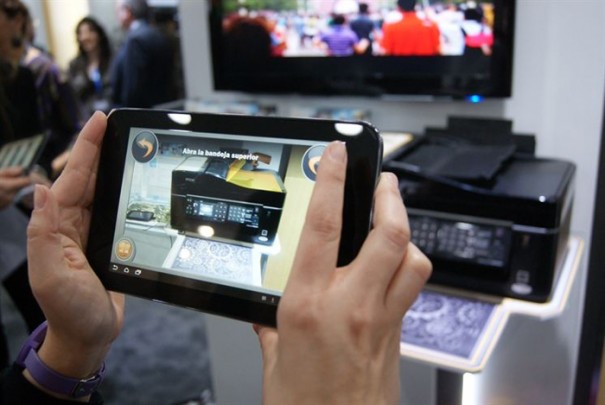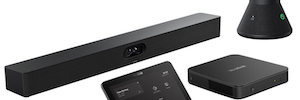e-labor: New augmented reality app to support the disabled
Qualcomm, The Vodafone Foundation and the Aprocor Foundation have shown an augmented reality platform at the Mobile World Congress in Barcelona to help people with intellectual disabilities integrate into the workplace.
The Foundation Vodafone Spain, Aprocor Foundation and Qualcomm, through its Wireless ReachTM initiative, have presented the augmented reality project 'e-labora' at the Mobile World Congress in Barcelona, developed with the aim of helping people with intellectual disabilities to integrate into the labour market.
In collaboration with the 'e-labora' project, which is developed within the framework of the Avanza Plan 2, This initiative responds to people with intellectual disabilities who need support when performing simple tasks “creating an environment that enhances your security, your emotional stability, communication, Autonomy and participation”, as pointed out by those responsible for the initiative.
In this way, augmented reality and 3G technology are incorporated into training and vocational training activities. Thanks to the collaboration of the 'Wireless Reach' initiative’ by Qualcomm, These developments with augmented reality technology will be used as personal support tools that provide communication, Task scheduling features, 'On-site' support, Step-by-step teaching, Completion of tasks and other pertinent information.
For example, Some apps include a navigation tool and information in the work environment, An easy guide on how to use equipment such as a printer or how to perform other tasks in the case of a gardener's stand or supermarket stocker.
Greater autonomy for people with intellectual disabilities
The president of the Aprocor Foundation, Ramón Corral, stressed that “Qualcomm's augmented reality technology contributes to improving the autonomy and integration of people with intellectual disabilities in the work environment”. Like this, added that it is “Extremely useful for recognizing people and providing information about their responsibilities, describe the space in which you work or show how to use a device”.
For its part, the general director of the Vodafone Spain Foundation, Santiago Moreno, has ruled that “this project provides the opportunity to improve the quality of life of people with intellectual disabilities through ICTs, promoting their personal autonomy and independent living”.
[YouTube]HTTP://www.youtube.com/watch?v=CicEa8ejW8A[/YouTube]
You liked this article?
Subscribe to our Feed And you won't miss a thing.















